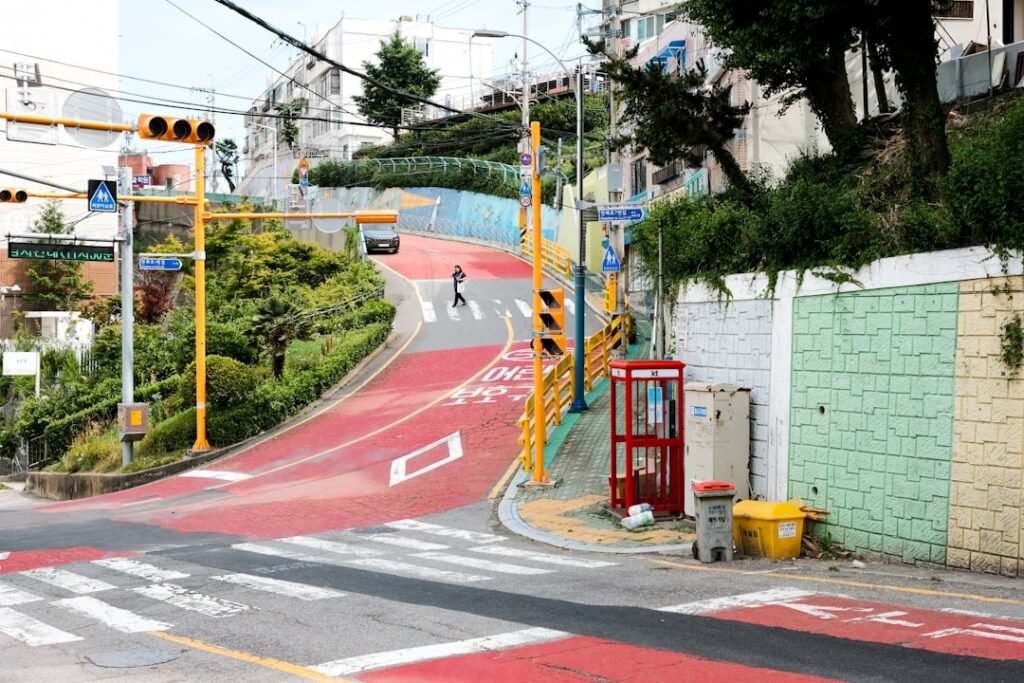

A Guide to the Korean Expression -아/어 주다 (-a/eo juda) for “do for me”
The Korean language is rich with expressions that convey nuances of politeness, respect, and relational dynamics. One such expression is -아/어 주다 (-a/eo juda), which plays a significant role in everyday communication. This expression is often used to indicate that one person is doing something for another, thereby highlighting the act of giving or providing assistance.
Understanding this expression is crucial for anyone looking to navigate social interactions in Korean culture, as it encapsulates the essence of cooperation and mutual support. In the context of learning Korean, mastering -아/어 주다 (-a/eo juda) can greatly enhance one’s conversational skills. It allows learners to express requests, offers, and gratitude in a manner that is culturally appropriate.
As we delve deeper into this expression, we will explore its meaning, usage, and various forms, providing a comprehensive understanding that will aid in effective communication. Begin your Korean studies at the NLS language school, right here in Oslo.
Table of Contents
ToggleSummary
- The Korean expression -아/어 주다 (-a/eo juda) is commonly used to show politeness and respect when making requests or expressing gratitude.
- -아/어 주다 (-a/eo juda) is used to ask someone to do something for you or to offer help or assistance to someone in Korean language.
- In everyday conversation, -아/어 주다 (-a/eo juda) is used to express gratitude and appreciation, as well as in requests and favours.
- There are different forms of -아/어 주다 (-a/eo juda) based on politeness and formality, and verbs need to be conjugated to use -아/어 주다 (-a/eo juda) in different tenses.
- Common mistakes to avoid when using -아/어 주다 (-a/eo juda) include using the wrong form of the verb and not showing proper respect and politeness.
Understanding the meaning and usage of -아/어 주다 (-a/eo juda)
The expression -아/어 주다 (-a/eo juda) can be broken down into two components: the verb stem and the auxiliary verb 주다 (juda), which means “to give.” When combined, this expression conveys the idea of doing something for someone else, thus emphasising the act of giving or providing a service. It is often used in contexts where one person is requesting help or favour from another, making it an essential phrase for learners to grasp. In practical terms, -아/어 주다 (-a/eo juda) can be used in various situations, from simple requests to more complex interactions.
For instance, if someone asks you to help them with a task, using this expression allows you to acknowledge their request while also indicating your willingness to assist. This not only fosters a sense of community but also reinforces the importance of interpersonal relationships in Korean culture.
Examples of using -아/어 주다 (-a/eo juda) in everyday conversation

To illustrate the usage of -아/어 주다 (-a/eo juda), consider the following examples that might occur in daily life. Imagine a scenario where a friend is struggling with their homework. You might say, “이 문제를 풀어 줄 수 있어?” (Can you solve this problem for me?).
Here, “풀어 줄” (pul-eo jul) incorporates the expression, indicating that you are asking your friend to solve the problem on your behalf. Another common example could be when someone asks for a favour. If a colleague requests assistance with a project, they might say, “이 자료를 복사해 줄 수 있어요?” (Can you copy this document for me?).
In this case, the use of -아/어 주다 (-a/eo juda) not only conveys the request but also reflects a level of politeness that is appreciated in Korean interactions.
Different forms of -아/어 주다 (-a/eo juda) based on politeness and formality
The expression -아/어 주다 (-a/eo juda) can take on different forms depending on the level of politeness and formality required in a given situation. In Korean culture, addressing someone appropriately is paramount, and this expression is no exception. The basic form is often used among friends or peers, while more formal variations are employed in professional or respectful contexts.
For instance, when speaking to someone older or in a position of authority, one might use the more formal version “아/어 주세요” (-a/eo juseyo). This slight modification elevates the politeness level and shows respect towards the listener. Conversely, when speaking to close friends or younger individuals, one might simply use “아/어 줘” (-a/eo jwo), which is more casual and friendly.
How to conjugate verbs to use -아/어 주다 (-a/eo juda) in different tenses
Conjugating verbs to use with -아/어 주다 (-a/eo juda) involves understanding how to modify the verb stem based on tense and context. The basic structure requires attaching -아/어 주다 to the verb stem after determining whether the stem ends in a vowel or consonant. For example, if the verb stem ends in a vowel, one would typically use -아 주다; if it ends in a consonant, -어 주다 would be appropriate.
In terms of tenses, one can express past actions by using “아/어 줬다” (-a/eojwotda), which indicates that something was done for someone else in the past. For example, “도와 줬어요” (I helped you) uses this past form effectively. To express future actions, one would use “아/어 줄 것이다” (-a/eojul geosida), indicating an intention to do something for someone in the future.
For instance, “내일 도와 줄게요” (I will help you tomorrow) demonstrates this future intention clearly.
Common mistakes to avoid when using -아/어 주다 (-a/eo juda)

While learning to use -아/어 주다 (-a/eo juda), learners often encounter common pitfalls that can lead to misunderstandings or awkward situations. One frequent mistake is misapplying the conjugation rules based on vowel harmony. It is essential to remember that the choice between -아 and -어 depends on the final vowel of the verb stem; failing to adhere to this rule can result in incorrect forms that may confuse listeners.
Another common error involves neglecting the appropriate level of politeness based on the relationship between speakers. Using a casual form with someone who expects formality can come across as disrespectful. Therefore, it is crucial for learners to assess their audience and adjust their language accordingly.
Practising these nuances will help avoid such mistakes and enhance overall communication skills.
Expressing gratitude and appreciation using -아/어 주다 (-a/eo juda)
One of the most heartwarming applications of -아/어 주다 (-a/eo juda) is in expressing gratitude and appreciation towards others. When someone has done something kind or helpful for you, acknowledging their effort using this expression can strengthen your relationship and convey your sincere thanks. For instance, after receiving help from a friend, you might say, “도와 줘서 고마워요” (Thank you for helping me).
This not only shows appreciation but also reinforces the bond between you and your friend. Moreover, expressing gratitude using -아/어 주다 (-a/eo juda) can also be extended to more formal situations. In a workplace setting, if a colleague assists you with a project, you could say, “도와 주셔서 감사합니다” (Thank you for your help).
This formal expression not only conveys your gratitude but also respects the professional relationship you share.
Using -아/어 주다 (-a/eo juda) in requests and favours
The ability to make requests politely is an essential skill in any language, and -아/어 주다 (-a/eo juda) provides an effective means of doing so in Korean. When asking someone for a favour or assistance, incorporating this expression can soften your request and make it more palatable. For example, if you need someone to lend you a book, you might say, “책을 빌려 줄 수 있어요?” (Can you lend me your book?).
This phrasing not only conveys your request but also implies that you value their willingness to help. Additionally, when making requests using -아/어 주다 (-a/eo juda), it is important to consider the context and relationship with the person you are addressing. A casual request among friends may differ significantly from one made in a formal setting.
Therefore, adjusting your language accordingly will ensure that your requests are received positively.
Polite ways to ask someone to do something for you using -아/어 주다 (-a/eo juda)
When it comes to asking someone to do something for you in a polite manner using -아/어 주다 (-a/eo juda), there are several strategies one can employ. Firstly, framing your request with an expression of appreciation can set a positive tone. For instance, saying “시간이 괜찮으시면 도와 주실 수 있을까요?” (If you have time, could you help me?) demonstrates respect for the other person’s time while making your request clear.
Another effective approach is to use conditional phrases that soften your request further. For example, “혹시 가능하시다면 도와 주실 수 있을까요?” (If it’s possible, could you help me?) not only conveys your request but also acknowledges that they may have other commitments. This level of politeness is highly valued in Korean culture and can lead to more favourable responses.
Using -아/어 주다 (-a/eo juda) to offer help or assistance to someone
Offering help or assistance using -아/어 주다 (-a/eo juda) is another important aspect of this expression that fosters community spirit and cooperation among individuals. When you see someone struggling or in need of support, extending an offer can make a significant difference in their experience. For instance, if you notice a colleague overwhelmed with work, you might say, “제가 도와 줄까요?” (Shall I help you?).
This not only shows your willingness to assist but also creates an atmosphere of camaraderie. Furthermore, offering help can also be framed as an invitation for collaboration. By saying something like “함께 일해 줄까요?” (Shall we work together?), you are not only offering assistance but also encouraging teamwork and shared effort.
This approach aligns well with Korean cultural values that emphasise collective success over individual achievement.
Conclusion and practice exercises for using -아/어 주다 (-a/eo juda) in Korean language
In conclusion, mastering the expression -아/어 주다 (-a/eo juda) is essential for anyone looking to communicate effectively in Korean. Its versatility allows speakers to express requests, offers of help, gratitude, and appreciation while navigating various social contexts with ease. By understanding its meaning and usage along with its different forms based on politeness levels and tenses, learners can enhance their conversational skills significantly.
To solidify your understanding of -아/어 주다 (-a/eo juda), consider practising with these exercises: 1. Create sentences using -아/어 주다 (-a/eo juda) in different tenses.
2. Role-play scenarios where you ask for favours or offer help using this expression.
3.
Write down instances where you would express gratitude using -아/어 주다 (-a/eo juda). By engaging with these exercises regularly, learners will become more comfortable using this expression naturally within conversations. For those interested in furthering their Korean language skills and exploring expressions like -아/어 주다 (-a/eo juda), consider enrolling in Korean courses at NLS Norwegian Language School in Oslo.
The school offers comprehensive language programmes tailored for all levels of learners, providing an excellent opportunity to immerse yourself in the language and culture while receiving expert guidance from experienced instructors. Whether you’re starting from scratch or looking to refine your skills, NLS provides an enriching environment conducive to learning Korean effectively.
If you want to learn Norwegian, you can register for classes here. We look forward to hearing from you and helping you become fluent in Norwegian.





